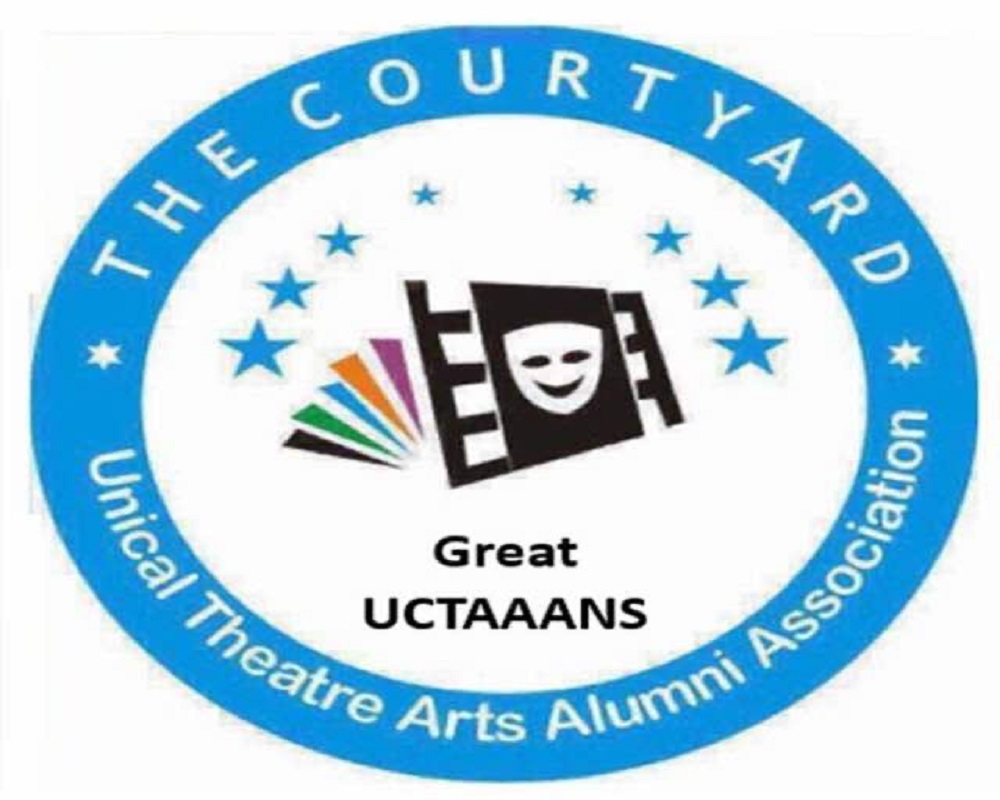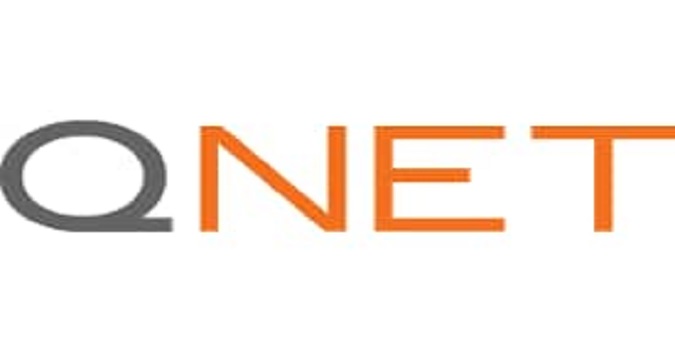Broadcasting
How UCTAAA Sponsored Indigent Alumni Member to Study Abroad

The University of Calabar Theatre Arts Alumni Association (UCTAAA) wishes to announce the execution of its premier welfare programme under the UCTAAA CARE Welfare Scheme.

The first welfare initiative christened ‘The Arit Project’ was hatched in February 2021 by a think-tank group under the leadership of the UCTAAA Care Chairman, Mr. Segun Ojalatan and endorsed by UCTAAA Global President, Mrs. Rita Ndidi Amuchienwa. The Arit Project came at a time when people were asking the buzz question, ‘what are the benefits of joining the Association?’
The Arit Project was simple and focused; Education.

Mrs. RN Amuchienwa, President, UCTAAA Global
According to the Global President, it was a test run to gauge the capacity and readiness of the Association to initiate and fund people centric welfare programmes in the midst of the economic challenges in the country.
Arit’s choice for the premier programme was spontaneous and impromptu. During UCTAAA general meeting, Miss Arit Edem of the Calabar Chapter had expressed her frustration in getting a good job citing poor skills that will enable her get a good job and lack of funds to acquire technical skill or even further her education. Her brave confession coupled with her willingness to commit herself was immediately interpreted as a cry for help and the Global President Mrs Rita Ndidi Amuchienwa triggered action through UCTAAA Care.

Miss Arit Edem
The next few days saw Arit and the team experimenting on viable options and a WhatsApp group was created tagged ‘Arit Progress Tracking’ made up of handpicked but willing members who raised funds for the identified project – personal development through further education.
The project, like other projects of this nature, suffered several challenges but the team had built its resilience structure woven round the Calabar/UK Chapters and the Global office. Importantly, the team was encouraged by Arit’s commitment to forge ahead.
We are happy to announce today that the project was a huge success and Arit Edem is in the UK pursuing her Master’s Degree. Miss Arit’s success story provides a tailored response to the buzz question regarding the benefits of joining the University of Calabar Theatre Arts Alumni Association.
The Arit story has not only shown that Alumni Associations are an amazing way to stay connected to mates/colleagues long after you graduation, but it presents an opportunity for us to see that the Association also offers awesome perks for members.

Arit with UCTAAA Care Chairman, Segun Ojalatan in UK.
The question begging for answers now is ‘who’s next?’ It is worth noting that even as members are encouraged to be active and socialize, the Global Exco will continue to pursue and champion projects geared towards improving the lives of its members. This will be done through consultation with key stakeholders, UCTAAA Care scheme as well as well-meaning individuals with capacity to partner with the Association towards improving the lives of its members.
While briefing the Chapters and thanking the donors on the Association’s social media platform, the Global President assured the members that based on the success of the Arit’s Project, members should brace up and be committed to the ideals of the Association because, UCTAAA Care will do it again.
Broadcasting
QNET Reaffirms Integrity: Dissociates from Mighty Infinity Millionaire Ltd in Nigeria

QNET, a global leader in direct selling focused on wellness and lifestyle products, firmly disassociates itself from any unlawful activities being conducted by unauthorized individuals or entities fraudulently using the QNET name to mislead and exploit members of the Nigerian public.

These concerns have resurfaced following the arrests of several suspects in Niger State and the Federal Capital Territory, Abuja.
QNET commends the Economic and Financial Crimes Commission (EFCC) for its actions in apprehending those responsible and is actively supporting the authorities to prevent further misuse of its brand.
QNET Says NO to Brand Misuse and Criminal Misrepresentation
QNET is a 27-year-old international direct selling company offering wellness and lifestyle products through a network of independent distributors.
These individuals are customers who have purchased QNET products and have chosen to build their own direct selling business using our platform. They operate independently and are not employees of QNET.
Unfortunately, certain third-party entities such as Mighty Infinity Millionaire Ltd, that have no affiliation to QNET, and operate without our oversight or recognition, have grossly misrepresented the QNET business model and acted in a manner that is in no way a representation of QNET business ethics or values.
We unequivocally state that such entities and individuals are not affiliated with or endorsed by QNET. QNET reiterates that Transblue Nigeria Limited remains our sole partner in Nigeria.
Operating Within Legal and Ethical Boundaries
In Nigeria, QNET operates strictly within the legal and regulatory frameworks through our official local partner, Transblue Nigeria Limited. We remain committed to ethical business practices and protecting both our brand and the public from exploitation. We urge members of the public to remain vigilant, verify the authenticity of individuals or entities claiming affiliation with QNET, and report any suspicious activity to the appropriate authorities.
Statement from QNET’s Regional Leadership & Legal Nigerian Partner
Responding to the fraudulent activities being perpetrated in QNET’s name, Biram Fall, Regional General Manager of QNET for Sub-Saharan Africa, states, “We are extremely disturbed by the way unscrupulous individuals have misused the QNET brand to deceive innocent Nigerians with false promises. At QNET, our values are rooted in honesty and empowering people to build better lives through genuine means. We remain committed to supporting law enforcement agencies in their efforts to bring these fraudsters to justice and encourage the public to verify any claims of affiliation with QNET before getting involved.”
To avoid further confusion, QNET wishes to emphasize the following:
● QNET does not operate or endorse any physical or online university under the name “Q-University” in Nigeria. QNET is part of a larger business conglomerate that operates the Quest International University in Malaysia, which does not have any overseas campus.
● QNET is not involved with online medical courses or academic institutions in Nigeria.
● QNET does not support or condone recruitment-driven models that promise employment, scholarships, or guaranteed returns unrelated to the legitimate sale or purchase of QNET products.
● QNET strongly condemns the unauthorized use of our intellectual property – including company logos, founder portraits, and promotional materials – by fraudulent actors aiming to mislead the public.
QNET’s Awareness Creation and Consumer Protection Efforts
Since entering the Nigerian market in 2022, QNET with the support of our local partner, Transblue Nigeria Limited, have prioritized financial literacy and consumer protection. In November 2023, we launched the Say NO! Awareness Campaign to educate the public about scams and promote responsible entrepreneurship. The campaign has reached thousands through multilingual billboards, radio messages, educational pamphlets, and online platforms. As part of this campaign, the Federal Ministry of Labour and Employment (FMLE) and the Lagos State Consumer Protection Agency (LASCOPA) were also engaged.
Cooperation with Law Enforcement
QNET expresses its full support and appreciation for the EFCC’s efforts to protect citizens and crack down on cyber and financial crimes. We are actively cooperating with the Commission in its investigations and are committed to further educating the public on the nature and values of QNET’s legitimate operations.
Public Advisory: How to Stay Safe
To protect yourself from scams falsely linked to QNET:
● Verify all QNET-related information at: www.qnet.net
● Report suspicious activity via email: network.integrity@qnet.net or WhatsApp: +233 256 630 005
● Learn how to identify scams at: www.saynocampaign.org
QNET remains fully committed to ethical business practices and transparency. We stand with Nigerian authorities in protecting citizens from fraud and will continue to cooperate fully to bring those misusing our brand to justice.
Broadcasting
Eedris Abdulkareem Teases New Protest Anthem following NBC Ban

Eedris Abdulkareem, veteran hip hop artiste, is showing no signs of backing down as he hints at releasing another protest song, shortly after his last track was banned by the National Broadcasting Commission (NBC).

Eedris Abdulkareem, veteran hip hop artiste
He recently again stirred the political waters as he hinted at the release of a new protest song, only weeks after his controversial track Tell Your Papa was banned by the National Broadcasting Commission.
The outspoken musician took to social media on Wednesday, April 16, 2025, to share an animated cover design with the words “3 Arms of Government,” suggesting the theme of his upcoming release.
Though the title remains undisclosed, the post was captioned simply with “Stay tuned,” fueling speculation that another hard-hitting social commentary is on the way.
Abdulkareem, known for his unapologetic political views, recently described the NBC’s decision to ban Tell Your Papa as hypocritical. Undeterred by censorship, he appears set to continue using music as a platform to criticize injustice and demand accountability.
The rapper also recently reaffirmed the relevance of his classic hit Jaga Jaga, stating that it would remain the country’s “second unofficial national anthem” until key issues like security, electricity, and governance are addressed.
With another protest song on the horizon, fans and critics alike are bracing for what may be Eedris Abdulkareem’s most direct political message yet.
Broadcasting
MultiChoice Brings Easter Home with Dedicated Pop-Up Channel

In celebration of the Easter season, MultiChoice has announced the launch of a dedicated Easter Pop-Up Channel, offering DStv and GOtv subscribers across Nigeria the chance to experience live broadcasts of key Easter events and services from the Catholic Archdiocese of Lagos.

The special channel, which runs from Thursday, April 17 to Monday, April 21, will be available on DStv channel 196 and GOtv channel 28, bringing the significance and beauty of Easter directly into viewers’ homes.
Throughout the Easter period, the channel will broadcast a rich lineup of live religious events. The programming begins on Thursday, April 17, with the Chrism Mass in the morning, followed by the Mass of the Last Supper in the evening.
On Good Friday, April 18, viewers can join in the Good Friday Tenebrae and the Seven Last Words service, followed by the Stations of the Cross from St. Gregory’s, and later the Passion Service.
The spiritual journey continues on Saturday, April 19, with the Easter Vigil Mass late in the evening, leading into the Easter Sunday Mass on April 20. The channel’s special programming concludes on Monday, April 21, with the Easter Monday Mass from Galilee.
This dedicated pop-up channel is designed for those who may be unable to attend church services in person, as well as for anyone seeking to deepen their spiritual observance during the Easter holidays. By broadcasting these significant events, MultiChoice reaffirms its commitment to providing content that resonates with the cultural and religious values of its viewers.
Subscribers are encouraged to tune in to DStv channel 196 and GOtv channel 28 throughout the Easter period to take part in these important religious celebrations from the comfort of their homes.

 Telecom3 days ago
Telecom3 days agoNigeria Hits 1 Terabit Internet Traffic Milestone

 E-Financial3 days ago
E-Financial3 days agoFCMB Capital Markets Leads ₦11.85bn GLNG Bond for LNG Plant Expansion

 General News3 days ago
General News3 days agoFG to Introduce New Tax Credit Scheme to Replace Pioneer Status Incentive

 Telecom3 days ago
Telecom3 days agoMTN Nigeria Faces Class Action Lawsuit over Alleged Data Mismanagement

 News3 days ago
News3 days agoIMF Downgrades Nigeria’s Economic Growth Forecast Amid Oil Price Decline

 News3 days ago
News3 days agoNITDA Fixes Date for Inaugural Meeting of the Startup Consultative Forum

 E-Financial2 days ago
E-Financial2 days agoUnion Bank’s Edu360 Initiative Scores Big for Nigerian Football Development

 Telecom3 days ago
Telecom3 days agoMart Networks Unveils Invinsense 6.0: AI-Powered Cybersecurity Revolution in Africa
















